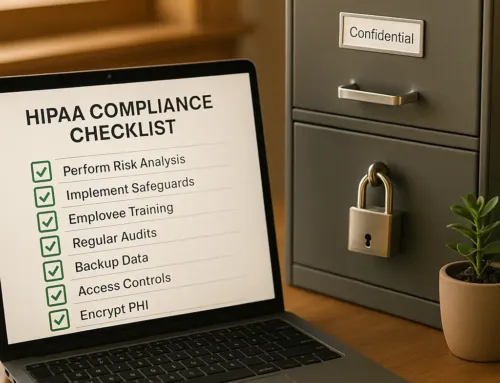What Small Businesses Need to Know About GDPR Compliance
What Is GDPR, and Why Should Small Businesses Care?
If you’re like most small business owners, the phrase “GDPR compliance” probably sounds like something only big corporations need to worry about. But the truth is, if your business collects personal data from anyone in the European Union – even one customer – GDPR applies to you.
The General Data Protection Regulation (GDPR) is a data privacy law designed to give individuals more control over how their personal information is used, stored, and shared. It affects any business, anywhere in the world, that handles data from EU citizens.
That means even if your business is based in the U.S., if you sell products online, accept bookings, run a newsletter, or use analytics tools on your website, you could be impacted.
In this guide, we’ll break down:
- What GDPR means for small businesses
- How to know if it applies to you
- The risks of ignoring it
- Simple, practical steps to get started on compliance
- How managed IT services can help protect your business and your customers
Let’s take the confusion out of compliance, and help you turn data privacy into a strength, not a liability.
Does GDPR Apply to Your Business?
Here’s the good news: If you don’t do business with anyone in the European Union, GDPR probably doesn’t apply. But in today’s digital world, that’s a much smaller group than you might think.
If you do any of the following, even occasionally, there’s a good chance GDPR is relevant:
You don’t need to have an office in Europe or advertise to the EU specifically. If you collect, process, or store personal data from someone in the EU, even one person, your business is expected to comply with GDPR requirements.
What Counts as Personal Data Under GDPR?
Bottom line: If your website is global, your compliance risk is too. GDPR applies based on who’s affected, not where your company is based. Tracking website visitors may be enough to trigger the need to comply with the GDPR.
Key Principles of GDPR Explained (In Plain English)
At its core, GDPR isn’t just about regulations, it’s about treating people’s personal data with respect and transparency. That means collecting only what you need, keeping it safe, and using it responsibly.
Here are the seven key principles of GDPR, translated for small business owners:
1. Lawfulness, Fairness, and Transparency
You must collect and use personal data in a way that’s legal, ethical, and clear to the customer. Be honest about why you’re collecting information, how it will be used, and who it will be shared with.
2. Purpose Limitation
Only collect data for specific, clearly defined reasons, and don’t use it for something unrelated later. For example, if someone signs up for a newsletter, you can’t automatically use that info to send sales emails they didn’t agree to.
3. Data Minimization
Only collect what you actually need. Don’t ask for a full address if you’re only sending digital content.
4. Accuracy
Keep personal data up to date and correct any mistakes promptly. If a customer asks to update their email or phone number, make sure your records reflect that.
5. Storage Limitation
Don’t keep personal data longer than necessary. Have a system for deleting old data you no longer use, especially for ex-customers or inactive users.
6. Integrity and Confidentiality
Protect personal data with appropriate security measures. Use encryption, access controls, and regular backups to keep data safe from breaches or leaks.
7. Accountability
You must be able to show that you’re following GDPR rules. That means keeping records, updating your privacy policy, and having a plan for handling data access or deletion requests.
Pro tip: Even if GDPR doesn’t apply to you right now, following these principles is a smart foundation for building customer trust and long-term resilience.
What Are the Risks of Ignoring GDPR?
When small businesses hear about GDPR, the first thing that comes to mind is usually:
“That’s probably not something I need to worry about.”
But here’s the reality: ignoring GDPR can put your business at serious risk, not just legally, but financially and reputationally as well.
Fines and Penalties
GDPR violations can lead to fines of up to €20 million or 4% of your company’s global revenue, whichever is higher. While regulators often target larger businesses, small businesses aren’t exempt if they mishandle EU data or ignore customer rights.
Loss of Customer Trust
Customers expect transparency and control over their personal information. If you don’t have clear privacy practices, or worse, mishandle someone’s data, it can damage your reputation and drive people away.
Partnership or Contract Barriers
Larger companies and government entities often require GDPR compliance as part of their vendor agreements. If you’re not in compliance, you may lose out on business opportunities or be removed from consideration altogether.
Security Gaps and Breach Costs
Many of GDPR’s requirements are good security practices, like encryption, access control, and data retention. Skipping them doesn’t just risk non-compliance, it makes you more vulnerable to cyberattacks and data breaches.
In short: Ignoring GDPR won’t just cost you in court, it can cost you clients, credibility, and control over your own systems.
Simple Steps to Start Becoming GDPR Compliant
Getting GDPR compliant might sound overwhelming, but for most small businesses, it’s about making smart, transparent decisions with the data you collect, and documenting those decisions in case you’re ever asked to show them.
Here are a few steps you can take right now to start moving in the right direction:
1. Audit the Data You Collect
2. Update Your Privacy Policy
3. Get Clear Consent (and Document It)
4. Add Cookie Notices and Preferences
5. Make Data Access and Deletion Easy
6. Secure Your Data
7. Keep Records of Your Efforts
Bonus Tip: Start small. Even incremental improvements show that you take data privacy seriously, and that’s good for compliance and for customer trust.
How Managed IT Services Help with GDPR Compliance
You don’t need to be a compliance expert to protect your business – you just need the right support.
For small businesses without an internal IT department, navigating GDPR alone can be time-consuming and confusing. That’s where a managed IT services partner comes in.
Here’s how a managed IT provider like SERVD I.T. can help:
1. Secure Data Storage and Access Controls
We help you store customer data safely using encryption, backups, and device protection. We also ensure only the right people in your company can access sensitive information.
2. Support with Data Audits and Documentation
Need to know what data you collect and where it’s stored? We can help map your data flows, identify risks, and set up proper recordkeeping so you’re ready if questions arise.
3. Privacy Policy and Consent Support
We’ll guide you through setting up compliant website forms, cookie notices, and opt-in mechanisms that meet GDPR standards, without disrupting your customer experience.
4. Backup and Recovery Strategy
GDPR requires that personal data be protected from loss and quickly restorable in case of a breach. We make sure you have encrypted backups, tested recovery plans, and secure storage.
5. Breach Detection and Response Support
If something goes wrong, GDPR requires notification within 72 hours. We help you detect issues faster, minimize damage, and respond quickly with documented procedures.
6. Ongoing Monitoring and Guidance
As regulations evolve and threats change, we help keep your systems aligned with best practices, so you stay protected, compliant, and confident.
Bottom line: GDPR doesn’t have to be overwhelming. With the right partner, you can meet your data privacy obligations without getting lost in the legal weeds.
Data Protection Isn’t Optional – Even for Small Businesses
You don’t need to be a global enterprise to take data privacy seriously. Even the smallest business can collect, store, or process personal information, and that means you have a responsibility to protect it.
GDPR compliance might sound like a legal headache, but at its core, it’s about building trust, reducing risk, and future-proofing your business. Whether you’re taking your first steps or refining your data strategy, what matters most is being proactive, and having a partner who can help.
At SERVD I.T., we make it easy for small businesses to build smart, scalable systems that align with GDPR and other data privacy requirements. We handle the technical side so you can focus on running your business, knowing your customers’ information is protected.
Need help making your business GDPR-ready? Let’s talk.



